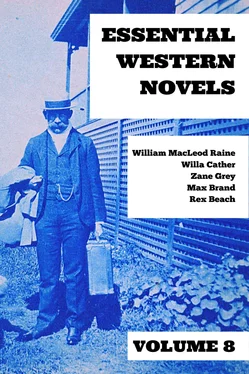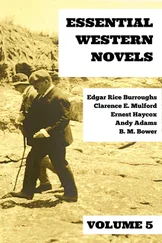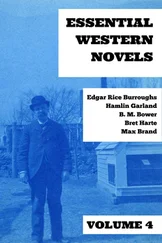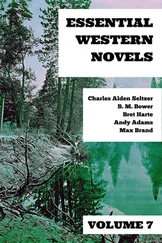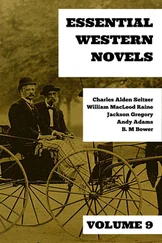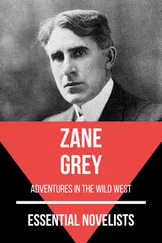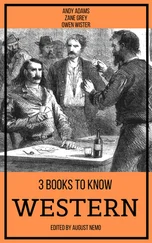It is the purpose of this paper to present a sketch of the life and people of this frontier region as the writer has become familiar with them, depicting the types and manners of mankind, and leaving for more profound narrators the matters of statistical detail.
Social estimation and intercourse on the frontier are based upon a very short acquaintance. A large and catholic charity presumes every man to be that which he desires to appear. To pry into the secret history of his former life, to pass hostile criticisms on it even when known to be discreditable, is not considered a public-spirited act; for those turbulent energies or uncontrolled passions which drove him out of eastern communities may prove of great service to that new country to which he has come. The first element of success in a frontier settlement is that a sufficient number of nomads should be willing to sustain each other in the belief that "this spot is to be a city and a centre." The news that a considerable group is already gathered on any such foreordained and favored spot brings others; nor do the arrivals cease until a day comes when it is bruited abroad that some of the "first citizens" have revised their views of its glorious destiny, and have left it for a new Eden. The sojourner in such regions—he cannot be called an inhabitant—lives in expectation of the coming settler who will pay him cash for his "claim"; or else perhaps he devotes himself to discovering a lode or a placer, which, if disposed of, may put him in funds for a year's spree; or again he may be a trapper, perpetually shifting his place as the peltry grows scarce. These indicate the respectable callings or expectancies of the solid men in frontier life; but they are surrounded by a larger throng of men, who hang about settlements with the possible hope of an honest El Dorado, but who in the meantime, and until this shall come, take to the surreptitious borrowing of horses without leave, or to the industries of the faro-table, or to the "road agency," by which phrase is signified the unlawful collection of a highway toll amounting usually to whatever of value the traveller may have about him. There are no superfluous refinements and gradations in frontier society. The citizen is either "an elegant gentleman" or a liar and a horse-thief. Yet even people of the latter description are rarely molested unless taken in the actual practice of their profession, which they ply, to say the truth, with such discrimination as to make interference with them difficult; but if caught in the very act and overpowered, their fate is sudden—they are "got rid of."
In fact, homicide on the frontier, as compared with horse-stealing, is a peccadillo. The horse has a positive value; the thief, a negative one. Justice does not pursue the man who slays his fellow in a quarrel; but if it grasps the stealer of a purse on the prairie or of a horse from the herd, his last day has come. Yet he always has the chance of escaping capture, and of playing in other frontier cities the rôle of "elegant gentleman" on his earnings, reimbursing himself in a professional way; and he may continue in this career even if suspected, provided he does not ply his vocation in those communities which he honors with his presence when not engaged in prosecuting his business. Personal violence is, however, mostly confined to instances where it is for the profit of the aggressor. The traditional free-fight, or killing a man at sight, is rare, probably much rarer than in the Southwest. Benton, the head of navigation on the Missouri, was the place where, according to the story, the early morning visitor at the bar-room, before it had been swept out, expressed his surprise, although he knew the soil to be good for vegetables, at the excellence of its fruit, judging from the large size of the grapes he saw on the floor, when he was informed, "Stranger, them's eyes!"—the results of the preceding evening's amusement. Yet in two visits to Benton the writer saw not the least sign of violence even in amusement, although he would be sorry to have some Bentonians around his camp at night if the horses were not well guarded, or to meet them on the prairie without sufficient protection.
If a settlement becomes permanent and prosperous, whether through commerce, mining, or agriculture, the first settlers sell out as soon as they can get cash in hand, and seek new domains. There are men who have passed their manhood in taking out claims, building ranches, and "realizing" for better or for worse, on a journey from Texas to Montana, sometimes taking in California by the way. Very often the wife, children, and stock of the pilgrim accompany him. Often a cabin is put up and inhabited by a family, with a retinue of cattle, horses, pigs, and poultry in the barn, only to be deserted the next year on the mere report of some better claim to be found further on. There never seems to be any real misery among these shiftless people. Their children grow up sturdy and ignorant, their stock and chickens multiply as they journey on. It may be a new stage-route which gives them a year's sustenance, such as it is, by their squatting on good enough grass-land to be able to fill a hay contract. Or they may go to a point near which some new military post is about to be built, where they can raise some vegetables to sell to the troops before the company gardens become productive. Or they may take out a claim on some really good spot, where permanent settlers speedily follow them. But as soon as they can see flour, bacon, and tobacco, and find a little in the pocket for whiskey and clothes, sufficient to last for a year ahead, off they go again,—not so much like gypsies, who will often revisit the same spot, as like the Wandering Jew, pursued by an avenging angel, driving them from contact with steady and methodical people. Their household stuff is packed in their "prairie schooners," as their wagons are called, and on they move by easy stages, seldom taking the trouble to pitch a tent at night, the women sleeping in the wagons and the men on the ground beneath them. There is plenty of grass for the stock, and the weather is pleasant. There is no especial hurry or worry: it is only necessary to reach somewhere, in time to put up a log hut and a shed for the stock, for the winter's shelter. The little army of the United States, spread over a country as large as the Roman Empire, does its duty so well that there is only occasional danger from Indians roaming away from their reservations, and the military telegraphs are now so far extended that timely warning is usually given if war parties are out. So on they go, day after day, while at night comes an encampment which perhaps may be best described in these humorous words of Captain Derby, in "Phœnixiana," during a criticism upon a supposititious performance of an opera called "The Plains":—
The train now encamps. The unpacking of the kettles and mess-pans, the unyoking of the oxen, the gathering about of various camp-fires, the frizzling of the pork, are so clearly expressed by the music that the most untutored savage could readily comprehend it. Indeed, so vivid and lifelike was the representation that a lady sitting near us involuntarily exclaimed aloud at a certain passage, "Thar, that pork's burning!" and it was truly interesting to watch the gratified expression of her face when, by a few notes of the guitar, the pan was removed from the fire, and the blazing pork extinguished. This is followed by the beautiful aria, "O marm, I want a pancake," followed by that touching recitative, "Shet up, or I will spank you!" To which succeeds a grand crescendo movement, representing the flight of the child with the pancake, the pursuit of the mother, and the final arrest and summary punishment of the former, represented by the rapid and successive strokes of the castanet. The turning-in for the night follows; and the deep and stertorous breathing of the encampment is well given by the bassoon, while the sufferings and trials of an unhappy father with an unpleasant infant are touchingly set forth by the cornet à piston.
Читать дальше
